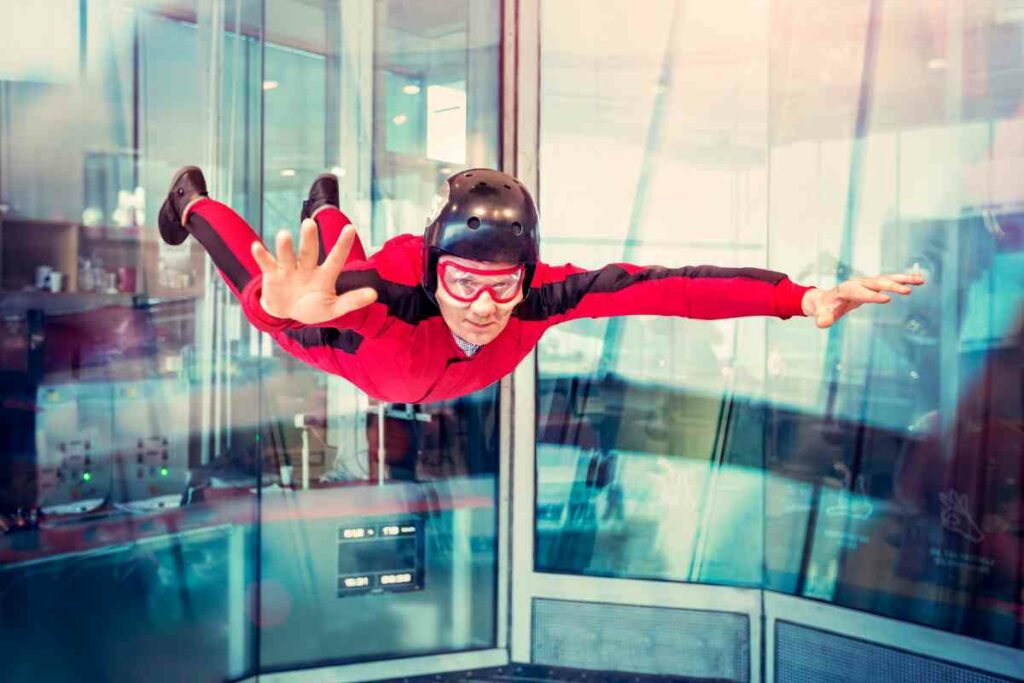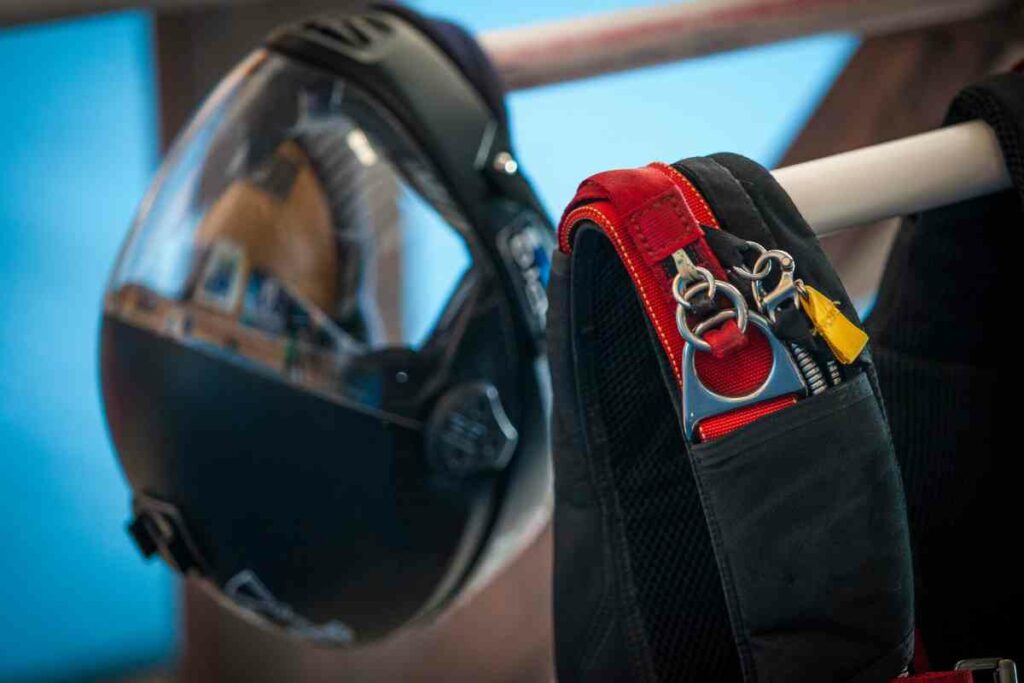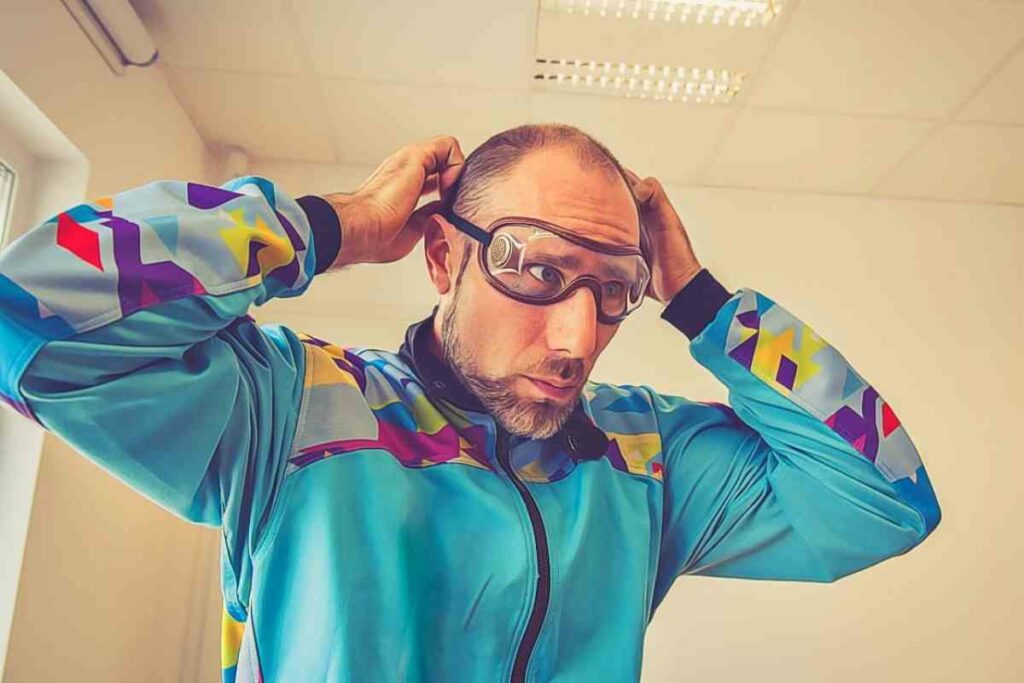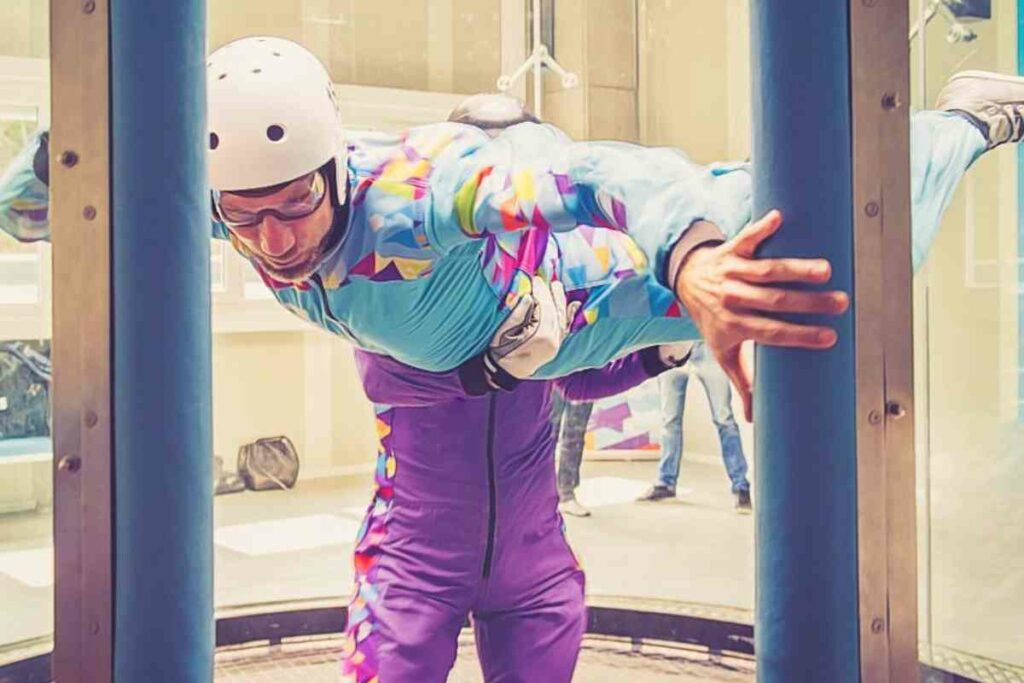Before taking on indoor skydiving, it is important to ensure that you are in good health.
This includes having no serious medical conditions and being able to participate in physical activity without difficulty.
It’s also crucial to be of a certain age, weight, and height for your own safety during the experience.
Read on to find out exactly which medical conditions don’t go too well with indoor skydiving.
General Health Requirements For Indoor Skydiving
Indoor skydiving requires a good level of overall health and physical fitness.
It’s important to check with your doctor before attempting indoor skydiving, especially if you have any pre-existing medical conditions or concerns.

General health requirements for indoor skydiving include:
- Good physical health
- Weight limit
- Not recommended for pregnant women
- Persons with anxiety and claustrophobia need to let the instructors know about their condition
A healthy weight is also important, as there are limitations on the size and weight of individuals who can participate in indoor skydiving for safety reasons.
Some centers may require participants to be at least 3 years old in order to get inside the indoor skydiving tunnel.
Craving more knowledge? Dive deep into a sea of information and satisfy your curiosity with our Indoor Skydiving Beginners Guide!
It’s also crucial to follow all safety instructions provided by the staff at the facility.
This may include:
- wearing appropriate clothing and gear
- avoiding excessive alcohol consumption prior to participating
- staying hydrated throughout the experience
- and being aware of your surroundings while flying in the wind tunnel
Can You Indoor Skydive If You Have a Medical Condition?

1. Cardiovascular conditions
People with cardiovascular conditions should not go indoor skydiving because this activity raises the heart rate and blood pressure, leading to the risk of heart problems or stroke.
The experience of wind tunnel flying can simulate a free-fall experience, increasing the workload of the heart and causing an adrenaline response.
For people with heart disease or high blood pressure, this increase in heart rate can be dangerous and possibly lead to a heart attack or stroke.
Therefore, it is important that individuals with cardiovascular diseases consult with their doctor before participating in indoor skydiving to determine whether it is safe for them to do so.
2. Respiratory conditions
Individuals with respiratory conditions should be cautious about going indoor skydiving because it can exacerbate their symptoms.
The high-speed wind in the indoor skydiving tunnel can cause shortness of breath and wheezing, making it difficult for individuals with asthma or chronic obstructive pulmonary disease (COPD) to breathe comfortably.
Additionally, the tunnel gets filled with various small particles such as clothing fibers and skin cells, which can be inhaled and trigger allergies or asthma attacks in people who are sensitive to them.
Therefore, it is important that individuals with respiratory conditions consult their doctor before deciding to go indoor skydiving and take proper precautions to manage their symptoms during the activity.
3. Musculoskeletal conditions
The activity requires participants to maintain a specific body position throughout, which can be difficult for individuals with conditions such as arthritis or joint problems.
The high-velocity wind in the tunnel can also put additional stress on the neck, back, and joints, causing pain and discomfort.
Therefore, it is essential that individuals with musculoskeletal conditions consult their doctor before deciding to go indoor skydiving and take proper precautions to manage their symptoms during the activity.
They should also ensure that they have appropriate support, such as braces or straps, to protect their joints and reduce the risk of injury.
4. Neurological conditions
Neurological conditions such as epilepsy or vertigo can make it difficult to maintain the required body position or control body movements during the activity.
This can increase the risk of falls or collisions with other participants or the walls of the tunnel, causing injury.
The high-speed wind in the tunnel can also exacerbate symptoms of neurological conditions such as dizziness and loss of balance, making it unsafe for individuals to participate in this activity.
Therefore, it is crucial that individuals with neurological conditions consult their doctor before deciding to go indoor skydiving and consider their own safety and ability before participating.
Precautions For Individuals With Medical Conditions
If you have a medical condition, it’s important to take some extra precautions before trying any new physical activity, like indoor skydiving:
- First of all, make sure to speak with your doctor beforehand and get their approval. They may have specific recommendations or restrictions based on your unique health needs.
- It’s also a good idea to talk with the staff at the indoor skydiving facility ahead of time. Let them know about your medical condition and ask if there are any additional safety measures they recommend taking during the experience.
When participating in indoor skydiving (or any other physical activity), be mindful of how you feel throughout the process.
Listen to your body – if something doesn’t feel right or if you’re experiencing any discomfort or pain, let an instructor know immediately.
Final Thoughts 💭
In conclusion, being physically healthy and fit is important for indoor skydiving.
It’s necessary to have good cardiovascular health as well as stable blood pressure and body weight.
Additionally, a clear mind and maintainable mental state are vital to ensuring safety during the activity.







